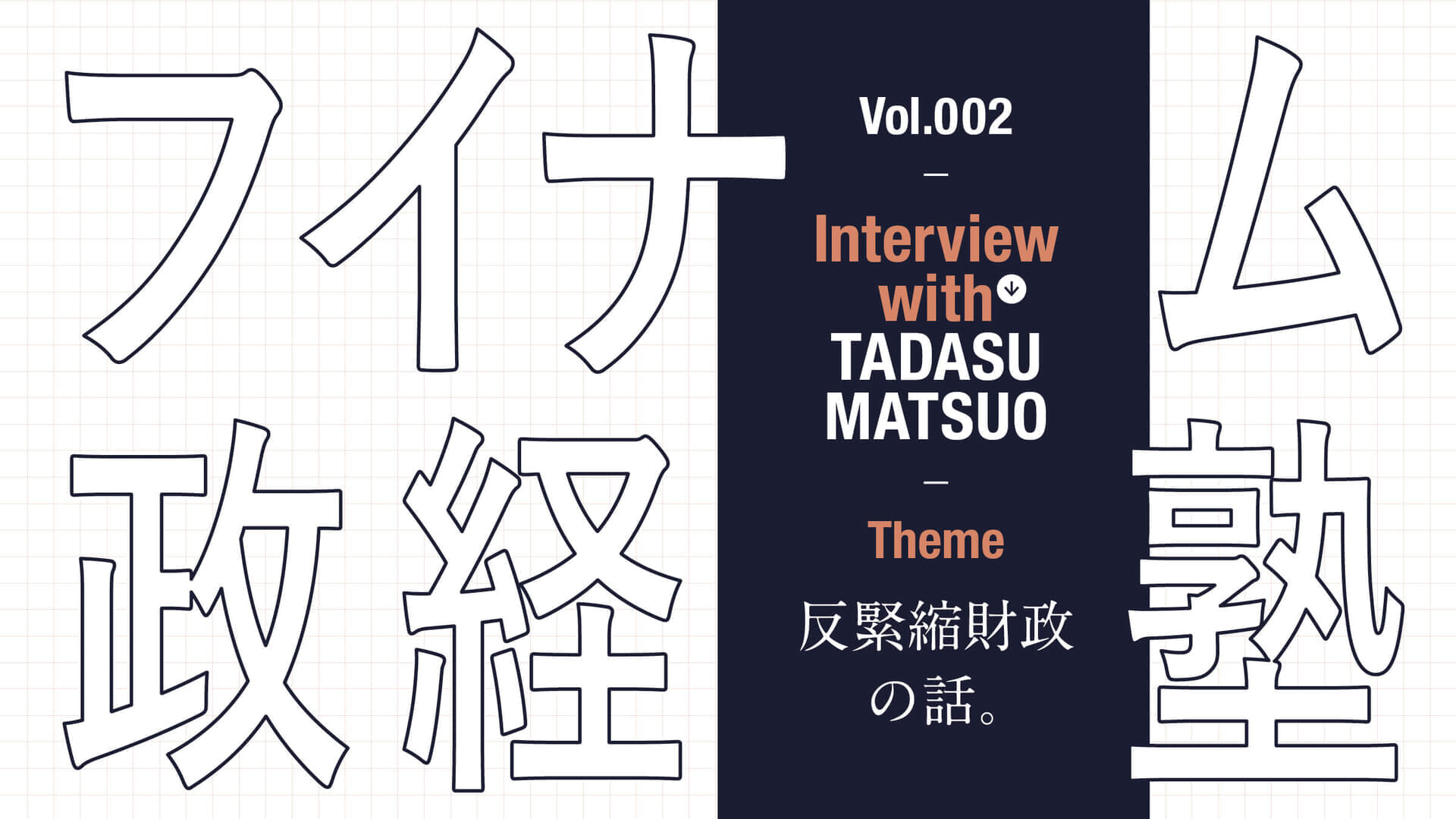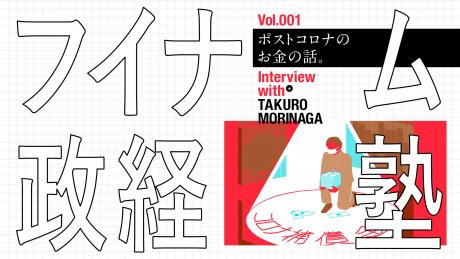Anti-austerity" is the key word for rebuilding the post-Corona economy.
If you look up the word "austerity" in a dictionary, you will find "to tighten firmly. Also, to tighten" (Kojien, 6th ed.). ThereforeAusterity is "an economic policy to tighten the country's purse strings and spend as little money as possible."This means. Japan had recently been undergoing a strong austerity program. We were initially not going to give any money at all for the Corona compensation. After being hit hard, we increased it somewhat.
On the other hand,Global trend is anti-austerityIt is. The opposite of austerity, it is "an economic policy in which the government gives out a lot of money.
He said that the government will be paying a lot of money,Social security will be more generous, with free hospitals and education and better support for childcareLess taxes and more jobs. There are many good things.
butTrying to do anti-austerity would cost a lot of money.It is a matter of course. Some people say that even a debt-ridden country like Japan should not be allowed to increase its debt any further. Let's take a look at what the anti-austerity movement is all about by listening to Tadashi Matsuo's opinion, which denies it outright.
Anti-austerity eliminates disparities.
In the past, post offices and trains were all state-owned businesses. Therefore, the people who worked there were public servants. In 2018, a law was passed to privatize even the water supply system.
Then, railroad workers and post office workers who were public servants will become company employees of general companies. The government will no longer have to pay salaries. The government will also be able to collect corporate taxes. This is the beginning of austerity.
This movement began in the 1980s, mainly in Western countries, and is sometimes referred to as neoliberalism or neoliberalism. At the same time, countries adopted austerity measures to reduce spending.
What exactly did we do?Under the guise of reducing the national deficit, the government cut social security spending on health care and education and raised consumption taxes to increase the balance of payments. At the same time, they cut taxes for large corporations and the wealthy under the banner of international competitiveness, etc.... As a result, the middle class has disappeared and the gap between the rich and the poor has widened. This gap has continued to widen under the Corona recession," said Matsuo.
Welfare and health care costs have been cut and wages have not increased.Only a handful of people have moneyOnly. Isn't that simply a little crazy?" The anti-austerity economic policy began with the idea of "Isn't that a little bit crazy?
There are four main characteristics of Matsuo's anti-austerity economic policy. That is."social security," "fiscal stimulus," "monetary easing," and "taxation of the rich."The following is a list of the most common problems with the

The "enhancement of social security" is intended to provide generous guarantees in areas such as medical care, long-term care, and education. For example,Hospitals should charge zero yen for medical examinations, schools should be free, pension benefits should be raised, and care workers should be paid a portion of their salaries by the government to raise their too-low wages even more.etc. Wouldn't you like to make this happen?
The "fiscal stimulus" is in addition to increasing public works projects,Spending money by the national and local governments to improve social security.This will warm people's hearts and minds. This will warm people's hearts and enable them to sell the goods and services they need to make a living. It is important to create workplaces in this way.
So when asked what to do with such money, the answer is "monetary easing.Issue lots of currency.The story. The "taxation of the rich" isGet rich people and big corporations to pay more taxes.This means.
If you do these four things,You will be able to live your life without worrying about the future....... Everyone can work as a full-time employee, so there is no need to worry about being cut off from temporary employment, and hospitals are free, so there is no need to worry about going bankrupt from surgical bills. Old age is also guaranteed. So the disparity is narrowed and everyone's life is improved.
Trump and even Boris Johnson are anti-austerity tics.
So next, let me ask Matsuo to explain how anti-austerity is the trend around the world. First, let's start with the United States.
Clinton and Obama did a lot of things on the surface, but in the end they followed the path of austerity. Thanks to that, inequality widened, the economy stagnated, employment did not expand, and social services were cut, leading to increased popular discontent. That is why, in the last presidential election, Sanders and Trump made great strides for the Democrats and Republicans, respectively, in the selection of candidates. Sanders almost became the presidential candidate by advocating for free college and $1 trillion in public investment, right?Trump was also elected by saying that we will invest in infrastructure on a large scale and spend a lot of money. Now he is also spending more and more money to deal with Corona!... There are a lot of bad uses, but if you ask me if I spend money or not, I spend a lot."
What about England?
'Britain's long history of strong austerity policies has resulted in a broken society and everyone is poor. So in the 2017 general election, the Labour Party led by Corbyn made great strides with its anti-austerity manifesto and drove the Conservative Party to the point of losing its majority. In contrast, Boris Johnson of the Conservative Party, who became Prime Minister in 2019, went into the general election declaring that he would stop austerity and spend money on social security.We will protect the system in which all citizens have access to state-run medical services, and we will raise the minimum wage.And say. Then the Conservatives won a landslide victory. It was partly because of the Labour Party's ambiguity on the issue of leaving the EU, but that alone would not have been enough to give them such an overwhelming victory.
In other countries as well, anti-austerity politicians are making great strides.
."On both sides, right and left, those who say 'I will give money for the common people' have a big following.I don't think so. Corbyn was a bubble candidate when he ran for party leader in 2015, but his anti-austerity policies were well received and he won a landslide victory. Even Le Pen of France, another far-right candidate, has a high approval rating because of her proposal to provide 1,500 euros to low-income people. The same is true for Ocasio-Cortez, the most left-wing U.S. senator, and Hungary's far-right Prime Minister Orbán.
So what about Japan?
The Koizumi administration pushed through the Dispatched Worker Law and the privatization of the Postal Service, which resulted in poor workers and a terrible recession. The DPJ failed to change that. SoMr. Abe won the general election and came to power by saying, 'I will improve the economy by giving out lots of money.At first, yes, we did spew fiscal spending, regardless of the content, but the tide turned when we raised the sales tax to 81 TP10T in 2014. Basically, we have been holding back on fiscal spending, increasing public investment when elections come around, and then cutting back after the elections are over.After moving away from anti-austerity, 10% sales taxThe company has raised the price to $3.50 per barrel.

In terms of the corona, the Japanese government has set aside an additional 117 trillion yen for countermeasures (as of June 23, 2020). Combined with the previous budget, the total is approximately 230 trillion yen or more. This amount includes tax deferments, government loans, etc., 100,000 yen to be distributed to citizens, benefits to be given to companies, etc.The money directly injected into the market (what is called "fresh water") is said to be about 57 trillion yen, although it varies from expert to expertIn addition, "reserve funds" that may not be used are also counted as fresh water. Furthermore, "reserve funds" that may not be used are also counted as fresh water,Excluding them, it is about 30 trillion yen.This amount of money may have a certain effect. This amount may have a certain effect, but it is not enough to reverse the downturn in the economy and to create an environment in which all those who want to work can do so at a decent salary,It's still not enough.The following is a list of the most common problems with the
Furthermore, it is customary to look at the cost of these measures as a percentage of GDP; GDP is the gross domestic product, and the correct way to look at it is what percentage of that GDP is being generated by the measures. We should not look at it only in terms of the amount of money. When you look at it that way,How little Japan spends on countermeasuresThe following is an example of a case in point.
They are also reluctant to pay for corona countermeasures. We need to come up with about 100 trillion yen in fresh water. If nothing is done, unemployment and bankruptcies will increase and the situation will become more dire. So we have a lot of spare capacity,This is no time to be reluctant.I am."
But there are also many who are concerned about whether they have that kind of money in the first place, or whether they can handle it in a country that is so heavily in debt. Next,Why Japan will be fine with anti-austerity measuresLet's explore the
- 1
- 2










